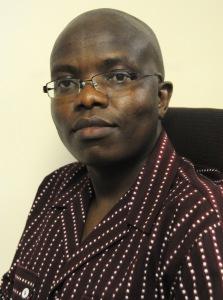
Seaparo Phala is Chief Information Officer at the South Africa Department of Arts and Culture, where he is responsible for information and communication technologies including providing leadership for ICT services for the National Archives and Records Service of South Africa as well as the National Film, Video and Sound Archives. He has a Bachelor in Commerce (Law).
As we land at OR Tambo International Airport on our return from Mauritius, I cannot help but feel as big as a Baobab Tree. We left from various parts of the African continent as just seedlings, but now we were all bigger. We were not big from the food we have been eating at Tamassa Resort, but we are bigger because we are all pregnant with more knowledge acquired from the African School of Internet Governance.
The seeds were planted by the call for applications to participate in the 2nd African School of Internet Governance. Out of the more than 600 applications from all over the continent, only 45 of us were selected who had varying degrees of knowledge and understanding of Internet Governance. We are the ‘chosen ones’, the flag bearers for the various countries and institutions we come from. The Tamassa Resort in Mauritius provided the fertile soil on which the seedlings of Internet Governance were watered.
To be in the same room as, and listen to Mr Nii Narku Quaynor, ‘the father of Internet in Africa” who is a living and human library of knowledge, was really empowering. Same goes for an experienced faculty of thought leaders in the field of internet governance that walked the journey with us.
By the second day of the school, we could already see a difference in our reasoning as well acronyms, vocabulary and terminology use. We have learned big concepts like: Multistakeholderism, Net Neutrality, Internet rights amongst others.
As we bid each other farewell with other Fellows who will be catching connecting flights to their countries, the saying; ‘a mind, once stretched by a new idea, never returns to its original dimensions’ started making a lot of sense. We have an obligation to soldier on and champion the cause for Internet governance.
As for me, I already have some fundamental questions that I need to shape the answers thereto:
- Why does a developing country like South Africa, which is a member of BRICS, not have a National Internet Governance Forum?
- Does the current ICT policy gazetted by the Department of Telecommunications and Postal Services address all the pertinent internet governance issues I have just learned about?
- Why is the internet governance debate not featuring on annual events like the GovtTech conference as well as the annual programme of the Government IT Officers Council (GITOC)?
As a Fellow for the 2nd African School on Internet Governance, the onus is on me and my South African Fellows to help our country in answering these questions and many more as well as putting internet governance on the national discourse.
